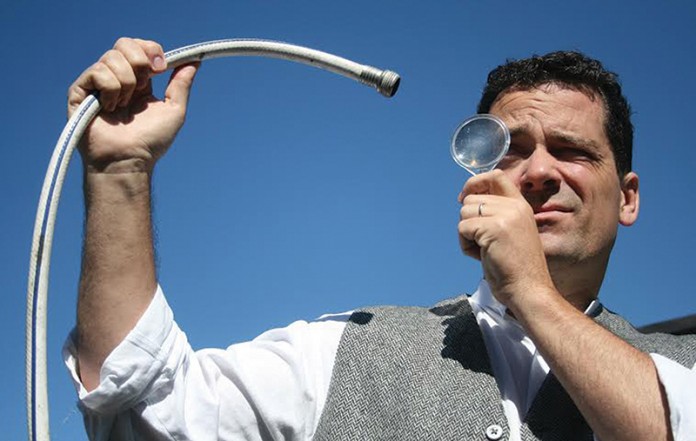I grew up fascinated by water as a powerful force of nature. It felt magic, beyond the reach of my family, country, or species. Drought or flood, water appeared indifferent to our fate.
School framed water through a value-neutral lens. Water flowed according to the immutable laws of geophysics. Every sinuous meander followed a mathematical ratio of length to radius (4.7). Chemistry books showed water’s molecular structure as without taste, colour, or smell, let alone age, gender, price, place, or politics.
But the reality is far more complicated–and more interesting.
Gravity? Water defies it, lifted, moved and transformed by manmade energy. Flavour? Imitating the wine industry, global contests now swill and rank water in competitive taste tests. Bland? Water reveals a spectrum of colours at nano scales that reflect on its minerals and salts. And water leaders devote vast resources to address water’s odour.
Water even grows old, by human calendars. Isotopes can–like a bar code or milk carton ‘sell by’ date–tell us if water in the ground seeped in three winters or 30,000 years ago. Water’s age helps managers decide how much can be pumped without elevated risks.
Gender-neutral? Each day more than 200 million women collect, transport and store water at a fundamentally local level. These mothers and daughters and sisters — with their drive, focus, networks, and communication skills –could transform the profession, but only if they are tapped in ways IWA studies suggest is not only good for women, but better for water.
Priceless? Again, no. Despite anti-privatisation protests in recent decades, a fundamental question for water remains: Who pays? Whether taxpayers, consumers, or businesses, the key to financing is to make water an investable opportunity.
Our use of land and air leaves a unique geographical fingerprint on water. Even before surface runoff, pollution now alters the acidity of raindrops that fall from the sky. Every litre we use has been locally filtered, processed and manufactured: an artificial construct.
The extent of these all-too-human interventions remind us that water is, ultimately, political. As our Debate feature demonstrates, when water systems break, as in Flint, Michigan, the tragic cause is less technical incapacity than political expediency. Inevitably, even “free markets” for river allocations get politicised.
It’s hard to let go of our earlier, simpler, childhood visions of water, and accept that there is no universal definition of ‘pure’ or ‘fresh’ or ‘clean’ or even ‘safe’ water, untouched by our species. Such words are relative to our past decisions, regulatory standards, economic development, legal enforcement, and end use.
A paradox of water is that females are locally responsible for managing it throughout our socioeconomic strata, but only up to a certain point, when they hit water’s glass ceiling.
Throughout the rural developing world, women, mothers and children gather water. They transport water. They negotiate for water. They debate water’s real value and appropriate usage. They barter water as currency, and allocate it for cleaning, washing, cooking, hair styling, or irrigating a backyard subsistence garden.
But upon crossing an invisible threshold, scale, or point of prestige, men take over. Today males dominate the water profession especially at the senior and managerial level. And if no women are present to ‘lean in’ at water’s decision-making table, their voices can get left out, muted, or ignored.
Our cover image depicts Sue Murphy, who runs the Water Corporation of Western Australia and who has been listed among the country’s top 100 most influential engineers. She believes strong female leadership and the employment of more women is key to the future development of the industry.
“We need to encourage more women in the water sector, because water is not just or even mostly about having technical skills, but rather influencing skills,” says Murphy. “Organisations reflect their makeup, and institutional change requires a new mind-set. And when it comes to changing someone’s mind on how they behave, I can think of no better person than a woman.”
This issue highlights all those, male or female, who use their influencing skills to embrace and shape water’s all-too human legacy, leading it into a more inclusive, secure, and valued future.






